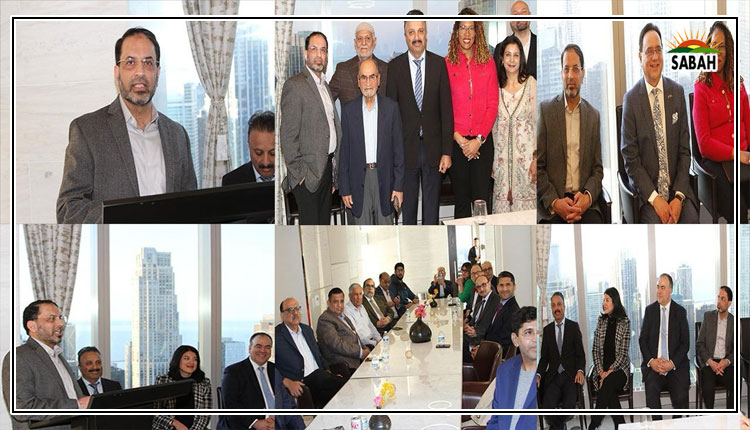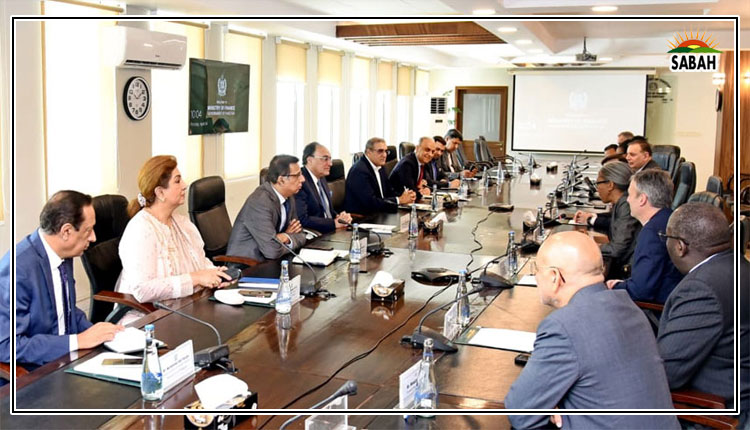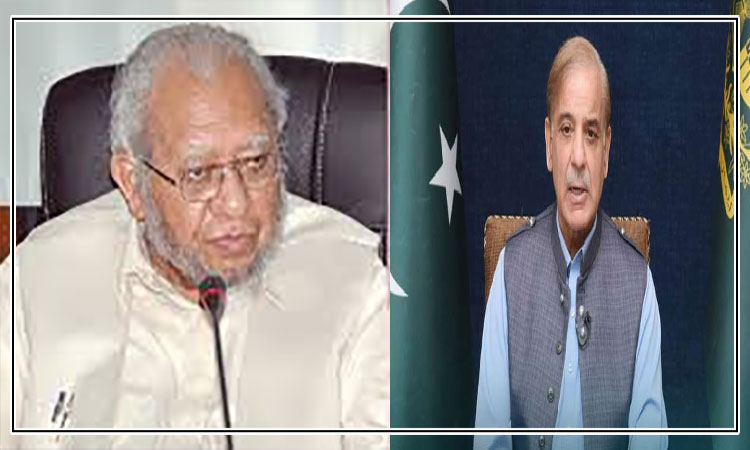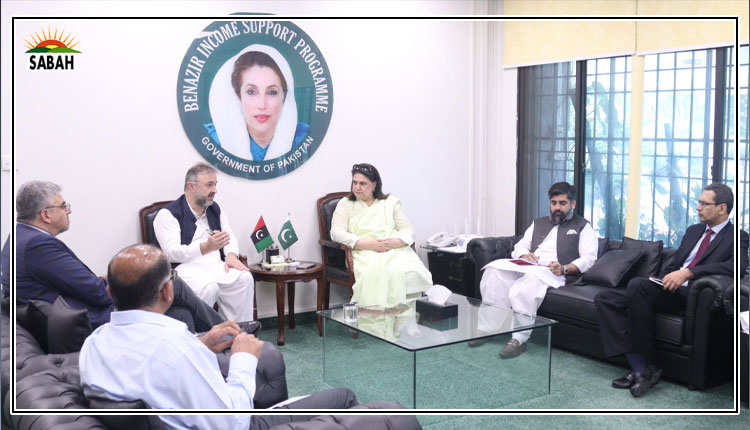Chairperson BISP Senator Rubina Khalid emphasizes need to hire young, energetic staff to facilitate the beneficiary registration process effectively
ISLAMABAD, April 07 (SABAH): Chairperson of the Benazir Income Support Programme (BISP), Senator Rubina Khalid, met with Najy Benhassine, the Country Director of the World Bank, at BISP Headquarters on Monday to discuss the progress and follow-up on the CRISP project. The meeting focused on key initiatives related to the project’s objectives and the various challenges BISP is addressing.
During the meeting, discussions covered the achievement of the DLIs under the CRISP project, the recruitment of BISP staff for the beneficiary registration process, and a comprehensive review of the NSER questionnaire. Other topics included expanding BISP services at the Union Council (UC) level, finding sustainable solutions for cybersecurity challenges, and addressing several other important issues related to BISP’s operations.
Chairperson Senator Rubina Khalid emphasized the need to hire young, energetic staff to facilitate the beneficiary registration process effectively. She also highlighted BISP’s ongoing efforts to tackle poverty through its Poverty Graduation strategy, particularly the Benazir Hunarmand Program. This program aims to provide meaningful skills training to beneficiaries, thereby helping them secure job opportunities both in national and international markets. She shared that BISP is currently in consultation with the Ministry of Overseas Pakistanis and technical institutions such as NACTTC to provide these vital training opportunities.
Additionally, the meeting addressed the need for equal representation of all provinces on the BISP board, as well as the importance of avoiding duplication of health and education initiatives between BISP and provincial governments. The recertification of BISP beneficiaries was also discussed to ensure the integrity of the program.
Najy Benhassine, Country Director of the World Bank, assured Chairperson BISP of the World Bank’s full support and expressed his commitment to collaborating closely with BISP. Both parties agreed to work together to identify existing gaps and challenges and to develop effective strategies to address them.












